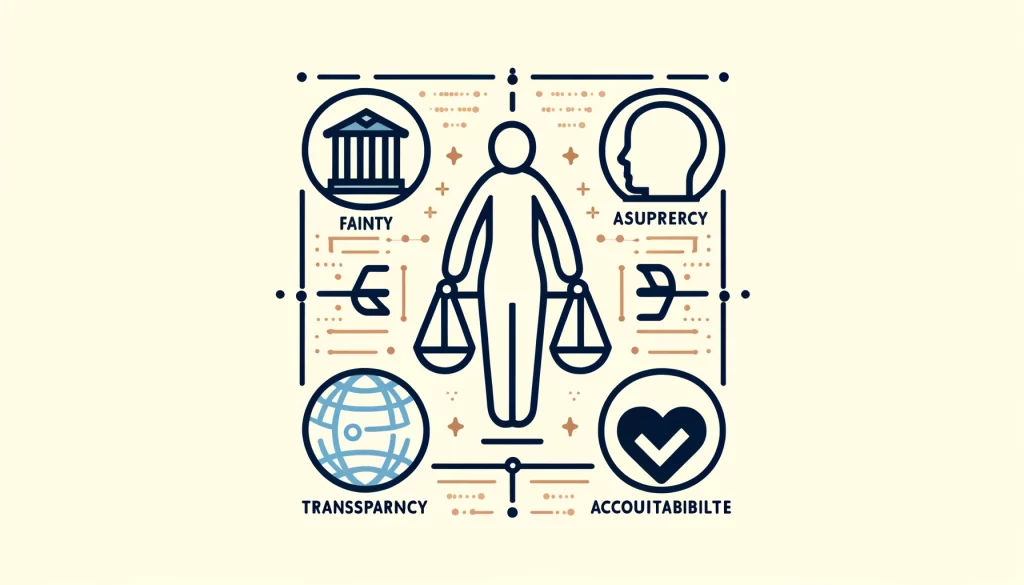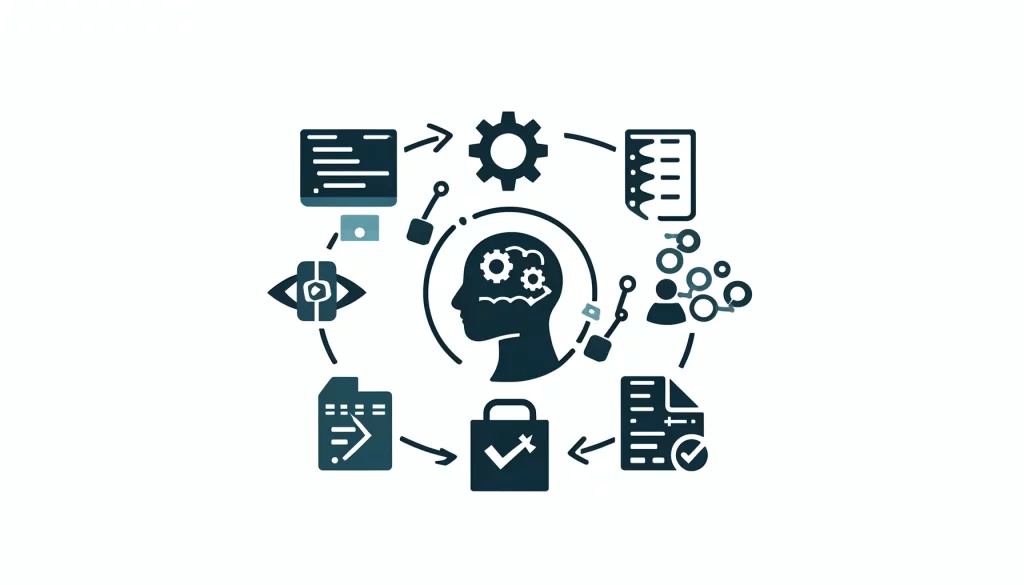Introduction
Artificial Intelligence (AI) is rapidly transforming various industries, and the field of computer programming is no exception. From basic automation to advanced intelligence, AI has introduced new paradigms that are reshaping the way we develop software. This article explores the evolution of AI in programming, highlighting key advancements, applications, and future trends. We’ll delve into how AI-driven automation enhances efficiency and innovation, the ethical considerations it brings, and the implications for the future of programming.
Enhancing Software Development with AI
AI in Software Architecture Design
Performance Optimization Using AI AI methodologies are increasingly applied to optimize system performance. For example, AI can use predictive models to forecast system loads in real-time, allowing administrators to manage resources proactively. These systems improve over time, learning from data to enhance their accuracy and response times (DZone) (Juliety).
Resource Allocation and System Scalability AI algorithms revolutionize resource management by predicting workload spikes and allocating resources to maintain uninterrupted service during peak usage. This predictive capability ensures better scalability and efficient resource utilization (DZone) (AI & Blockchain Solutions).
AI in Database Management
AI-Driven Query Optimization AI enhances database management by optimizing query performance through machine learning algorithms. These systems learn from past execution data to predict workloads, allowing for efficient resource usage and faster query execution (DZone).
Predictive Analytics and Real-Time Decision-Making AI plays a crucial role in predictive analytics, enabling systems to forecast outcomes based on historical data. This capability is essential in various applications, from financial services to healthcare, where real-time decision-making is critical (DZone) (AI & Blockchain Solutions).
Case Studies of AI Applications in Software Development
AI-Powered Code Generation Tools AI-powered tools like GitHub Copilot assist developers by generating code snippets based on the context of their work. These tools improve productivity by reducing the time spent on writing boilerplate code and enabling developers to focus on more complex tasks (AI & Blockchain Solutions).
Automated Debugging and Testing AI-driven debugging and testing tools automatically identify and fix bugs in the code, significantly improving software quality and reducing development time. These tools use machine learning to understand code patterns and predict potential issues (DZone) (Juliety).
Ethical and Social Implications of AI in Programming
Ethical Considerations in AI-Driven Decision-Making

Bias in AI Algorithms AI systems can inadvertently perpetuate biases present in the data they are trained on. This issue is particularly concerning in areas such as hiring, law enforcement, and finance, where biased algorithms can lead to unfair outcomes. Ensuring transparency and fairness in AI algorithms is essential to mitigate these risks (DZone) (AI & Blockchain Solutions).
Transparency and Accountability As AI systems make more decisions, it becomes crucial to ensure they are transparent and accountable. Developers must implement clear documentation and explainable AI models to ensure that stakeholders understand how decisions are made and can hold systems accountable (DZone) (Juliety).
Social Impact of AI in Programming Jobs
Job Displacement and Creation AI-driven automation can lead to job displacement, particularly in roles involving repetitive tasks. However, it also creates new opportunities in AI development, data science, and AI system management. The net effect on employment varies across industries and regions (McKinsey & Company) (AI & Blockchain Solutions).

Evolving Skill Requirements for Programmers As AI becomes more integrated into programming, the skill requirements for programmers are evolving. There is a growing demand for skills in AI, machine learning, and data science. Additionally, programmers need to develop expertise in ethical AI practices and explainable AI to navigate the complexities of AI integration (McKinsey & Company) (AI & Blockchain Solutions).
Conclusion
The integration of Artificial Intelligence into programming is transforming the field from mere automation to sophisticated intelligence. AI-driven tools and methodologies enhance efficiency, accuracy, and innovation in software development. They optimize system performance, manage resources effectively, and provide real-time decision-making capabilities. These advancements lead to higher productivity and cost savings while improving the quality of software products (IBM – United States) (DZone) (AI & Blockchain Solutions).
However, the rise of AI in programming also brings significant ethical and social considerations. Ensuring transparency, fairness, and accountability in AI algorithms is crucial to prevent biases and build trust. Moreover, while AI creates new job opportunities in data science and AI development, it also demands a shift in skills, emphasizing the need for continuous learning and adaptation among programmers (McKinsey & Company) (DZone) (Juliety).
Looking ahead, the future of AI in programming holds promising trends and innovations. As AI continues to evolve, it will further integrate with emerging technologies, driving unprecedented changes and opportunities in the software development landscape. Embracing these advancements while addressing the ethical and social challenges will be key to leveraging AI’s full potential in programming.
Frequently Asked Questions (FAQs)
1. How is AI improving the efficiency of software development? AI improves the efficiency of software development by automating repetitive tasks, optimizing resource management, and enhancing decision-making processes. Tools like AI-driven code generators and automated testing systems reduce the time and effort required for development, allowing developers to focus on more complex and creative tasks (IBM – United States) (AI & Blockchain Solutions) (Juliety).
2. What are the ethical concerns associated with AI in programming? Ethical concerns include biases in AI algorithms, lack of transparency, and accountability. Biases can arise from the data used to train AI models, leading to unfair or discriminatory outcomes. Ensuring transparency in AI decision-making processes and holding systems accountable for their actions are critical to addressing these ethical issues (DZone) (AI & Blockchain Solutions).
3. How is AI changing the job landscape in programming? AI is reshaping the job landscape by automating tasks that previously required human intervention, potentially leading to job displacement in some areas. However, it also creates new opportunities in AI development, data science, and AI system management. The demand for skills in AI and machine learning is growing, requiring programmers to continually update their knowledge and skills (McKinsey & Company) (AI & Blockchain Solutions).
4. What future trends can we expect in AI-driven programming? Future trends in AI-driven programming include deeper integration with emerging technologies like IoT and blockchain, advancements in AI-driven code generation and debugging tools, and increased focus on ethical AI practices. These trends will continue to drive innovation and efficiency in software development, offering new possibilities and challenges (IBM – United States) (DZone) (AI & Blockchain Solutions).